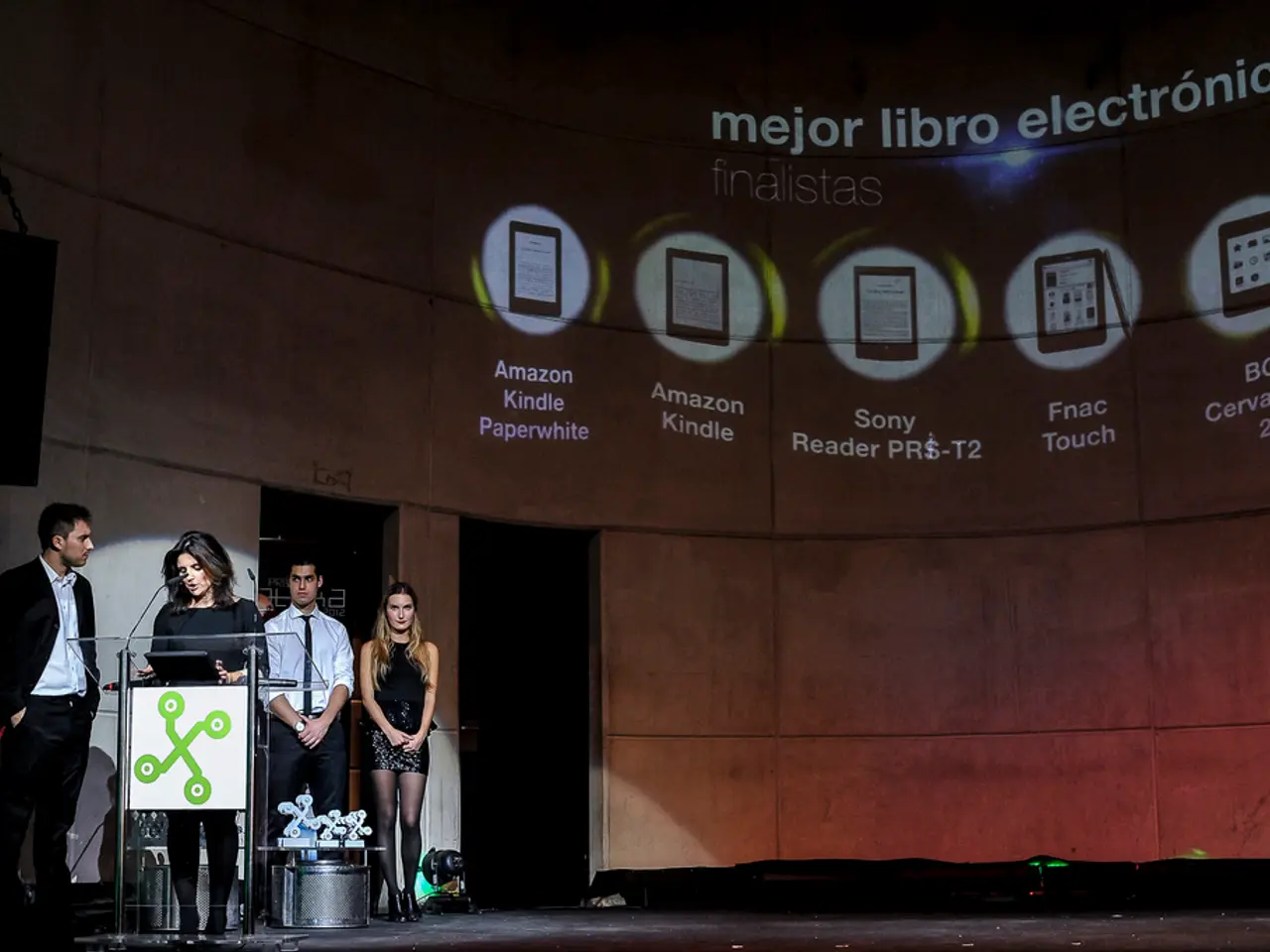Tech Gadgets Revolutionized Our Existence: A Historical Perspective on Their Impact
Technological advancements have been the driving force behind the transformation of human civilization, improving life expectancy, economic productivity, communication, and knowledge dissemination on a global scale.
The Early Beginnings
The journey began millennia ago with prehistoric stone tools and the control of fire, enabling human survival and societal growth. These simple yet revolutionary tools marked the beginning of human civilization.
The Industrial Revolution
The 18th century brought the Industrial Revolution, a period marked by steam power, mechanization, and mass production. Steam engines powered trains and ships, revolutionizing agriculture, manufacturing, transport, and urbanization.
The Age of Communication
The 19th and 20th centuries saw rapid scientific breakthroughs, including the telegraph, telephone, and light bulb, which improved communication and daily life. The invention of the telephone, for instance, enabled near-instant communication over long distances during the Industrial Revolution.
The Digital Age
The discovery of nuclear fission led to nuclear power and weapons, while the invention of the transistor in 1947 ushered in the digital computing era and the Information Age, culminating in the Internet and space exploration. The launch of Sputnik in 1957 marked the beginning of the Space Age.
Medical Breakthroughs
Medicine significantly advanced with diagnostic and treatment technologies like CT and MRI scans, dialysis machines, and pharmaceuticals.
Artificial Intelligence
Artificial intelligence evolved from early WWII codebreaking machines to modern sophisticated algorithms, influencing many industries. Alan Turing’s WWII codebreaking in 1942 and the tests of machine intelligence in the 1950s are key milestones in the development of AI.
Modern Advancements
In the modern era, we have witnessed the birth of personal computers, forever altering how we work, learn, and communicate. The 1970s and 1980s saw this transformation, with the first personal computers becoming commonplace.
The invention of the internet and mobile communication revolutionized information access and communication in the 1990s, while the iPhone, launched in 2007, marked the start of the smartphone era, bringing with it social media, apps, and an always-connected lifestyle.
Smart thermostats were developed to adjust temperatures automatically, and household gadgets like refrigerators, washing machines, and microwaves revolutionized domestic chores in the early 20th century.
The Future of Technology
Video games have become more immersive with the advent of virtual reality (VR) and augmented reality (AR). Wearable and smart devices like fitness trackers and smartwatches became popular, putting technology on our wrists and in our clothing.
Advances in quantum computing, neural interfaces, and biotechnology promise to push the boundaries of what's possible in tech gadgets. Self-sustaining AI ecosystems may become the norm, where gadgets communicate with each other to optimize lives effortlessly.
AI-powered chatbots, self-driving cars, and smart algorithms are transforming industries at an astonishing pace. E-books and online learning platforms have made education more accessible. Robotic vacuum cleaners were introduced to clean homes without human effort. AI-powered personal assistants like Siri and Google Assistant anticipate user needs.
Challenges Ahead
However, the integration of technology into daily life will also bring ethical concerns, such as privacy, security, and the human impact of automation. Voice assistants like Alexa and Google Home were introduced, allowing control of appliances with simple voice commands.
Smart cities, powered by IoT (Internet of Things), will manage energy efficiency, reduce traffic congestion, and improve urban living. The journey with technology is far from over-it's only just beginning.
[1] [Turing, A. M. (1950). Computing machinery and intelligence.] [2] [Shannon, C. E., & Weaver, W. (1949). The mathematical theory of communication.] [3] [McCarthy, J., Minsky, M., Roth, A., & Shaw, P. (1956). A proposal for the Dartmouth summer research project on artificial intelligence.] [4] [Russell, S., & Norvig, P. (2010). Artificial intelligence: A modern approach.]
- Gadgets like microwaves and washing machines revolutionized domestic chores in the early 20th century, making life easier for numerous households.
- The 1950s saw key milestones in the development of artificial intelligence, with tests of machine intelligence taking place during this time.
- Personal computers forever changed how we work, learn, and communicate in the 1970s and 1980s, as they became commonplace.
- The invention of the internet and mobile communication in the 1990s revolutionized information access and communication.
- The iPhone, launched in 2007, marked the start of the smartphone era, introducing social media, apps, and an always-connected lifestyle.
- Advances in virtual reality (VR) and augmented reality (AR) have made video games more immersive, offering new experiences for gamers.
- Fitness trackers and smartwatches have become popular, putting technology on our wrists and in our clothing, tracking daily activities and health trends.
- Self-driving cars, AI-powered chatbots, and smart algorithms are transforming industries at an astonishing pace, with tech companies constantly pushing boundaries.
- E-books and online learning platforms have made education more accessible, democratizing knowledge and helping individuals reach their learning goals.
- Robotic vacuum cleaners were introduced to clean homes without human effort, making domestic chores more efficient.
- AI-powered personal assistants like Siri and Google Assistant anticipate user needs, providing personalized services and assistance.
- The integration of technology into daily life will also bring ethical concerns, such as privacy, security, and the human impact of automation.
- Voice assistants like Alexa and Google Home allow control of appliances with simple voice commands, adding convenience to home management.
- Smart cities, powered by the Internet of Things (IoT), will manage energy efficiency, reduce traffic congestion, and improve urban living.
- Quantum computing, neural interfaces, and biotechnology are promising advancements that will push the boundaries of what's possible in tech gadgets, creating self-sustaining AI ecosystems.
- The journey with technology is far from over-it's only just beginning, as we continue to explore and innovate in fields like food-and-drink, lifestyle, cybersecurity, data-and-cloud-computing, global-cuisines, sustainable-living, sports-betting, football, entertainment, pop-culture, sci-fi-and-fantasy, learning, goal-setting, mindfulness, sports-analysis, and education-and-self-development.




